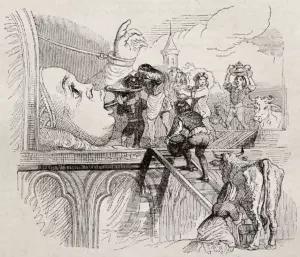I am fascinated by wine descriptions. From a series of adjectives, often without a verb to change them into a sentence, to accounts using metaphors whose poetry can take your breath away (just read, for example, Oz Clarke, Andrew Jefford, or Tamlyn Currin), wine writing offers a dizzying spectrum of practices. No wonder perhaps that ‘wine language’ has often been reflected on by wine writers.
For an academic linguist like me, reflections on wine language are a rich source of insight into how language and wine communication are perceived. Most recently, such a reflection was made by Cong Cong Bo in her article Ultimate Aromatherapy on this website.
As is commonly the case, the author argues that wine vocabulary is exclusionary. Its taxonomies and labelling confuse people. Wine language, in addition, is “woefully inadequate to describe the flavours, sensations, thoughts, and emotions we experience when we drink”. The sommelier says people find it hard to understand what ‘poised’ or ‘elegant’ might mean in reference to wine.
These are not sound arguments, in my vew. The issue of taxonomies and labels is not a linguistic one. Indeed, more drinking (and perhaps more reading) would resolve the issue quickly. In addition, thousands and thousands of wine loving people simply do not care. Wine writers’ relevancies are neither universal, nor even common.
But are words like ‘precision’ or ‘elegance’ exclusionary? Are words like ‘clutch’ or ‘carburettor’ also exclusionary? Are perhaps phrases such as ‘depressive episode’ or ‘myocardial infarction’ (depression and heart attack, respectively,





